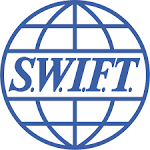December 21, 2018
Prices of imported goods are likely to rise by about a quarter because SWIFT has shut off access by Iran, former Commerce Minister Hassan Abdel-Jafari says.
 He said one problem is that it is more expensive when a business must bypass SWIFT and find some other way to make business deals. Another major problem is that foreign firms historically jack up their prices when they know of the problems Iranian businesses are facing.
He said one problem is that it is more expensive when a business must bypass SWIFT and find some other way to make business deals. Another major problem is that foreign firms historically jack up their prices when they know of the problems Iranian businesses are facing.
SWIFT (Society for Worldwide Interbank Financial Telecommunication) is a cooperative set up so that 11,000 banks around the world can easily move money between each other. Last month, under sanctions pressure from Washington, SWIFT stopped dealing with Iranian banks.
“Today, monetary transactions are carried out through SWIFT and the Western economy has set up this system to have secure banking transactions and for providing letters of credit (LCs),” Abdel-Jafari told Trend, the Azerbaijani news agency.
“Of course, in the past, we were also subject to this limitation, and we had to use indirect ways to transfer money that were more costly. During that period, since we could not use the LCs, our importers faced problems, such as lack of commitment and low quality goods. This issue occurs in transactions with countries like Brazil,” he said.
“Non-issuance of LCs has two major losses: first, we had to pay 90 percent of the money first, which had a high risk, and second, the high costs, especially when suppliers were aware of our limitations and tried to raise the prices,” Abdel Jafari said referring to importance of LCs during the Iran-Iraq War.
“Therefore, if we buy outside SWIFT or LC framework, according to estimations, the prices will rise 25 percent. It must be accepted that cutting off SWIFT is not a joke, and in some ways the private sector, buyers and sellers will all be harmed,” he said.
























